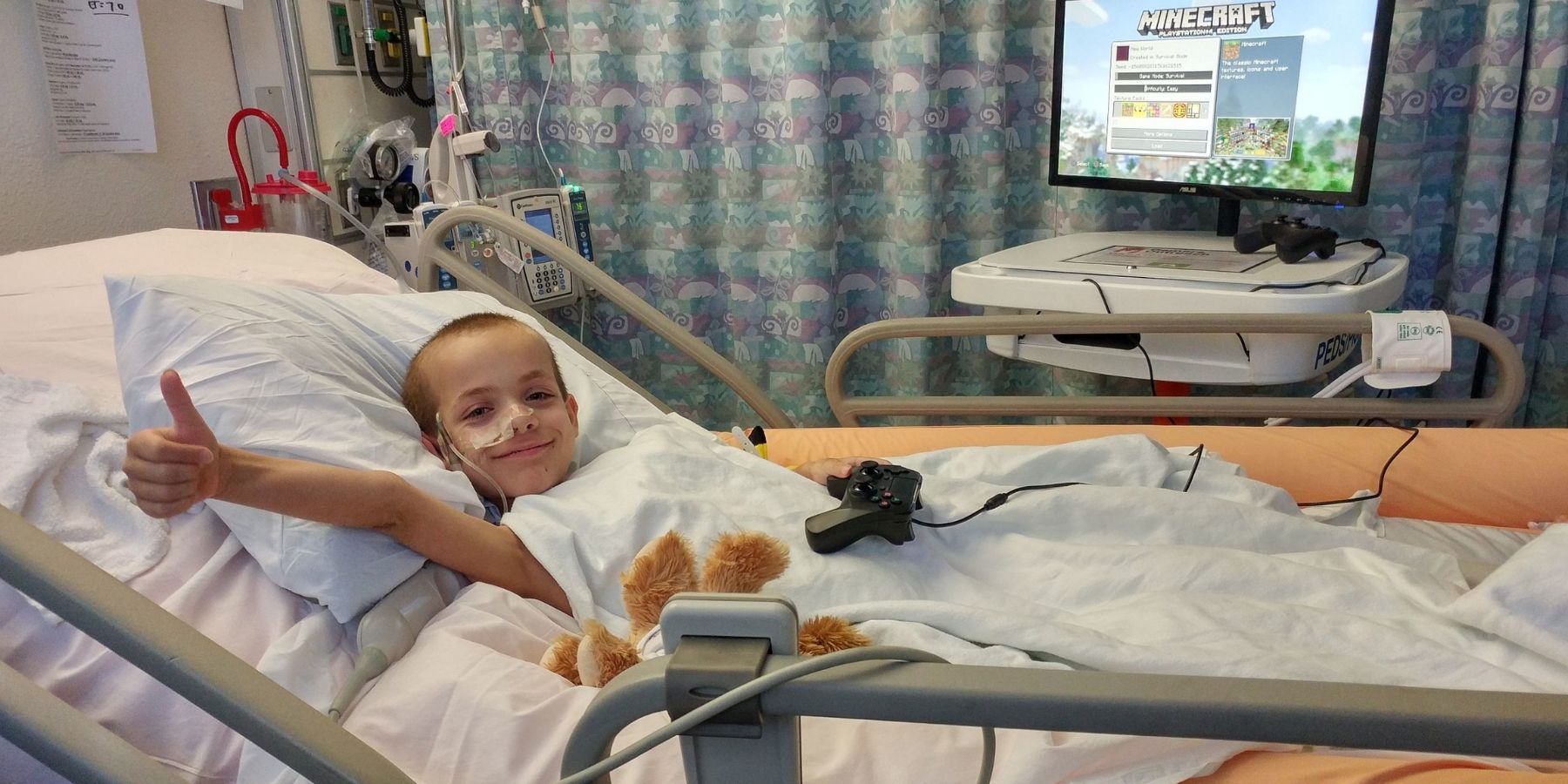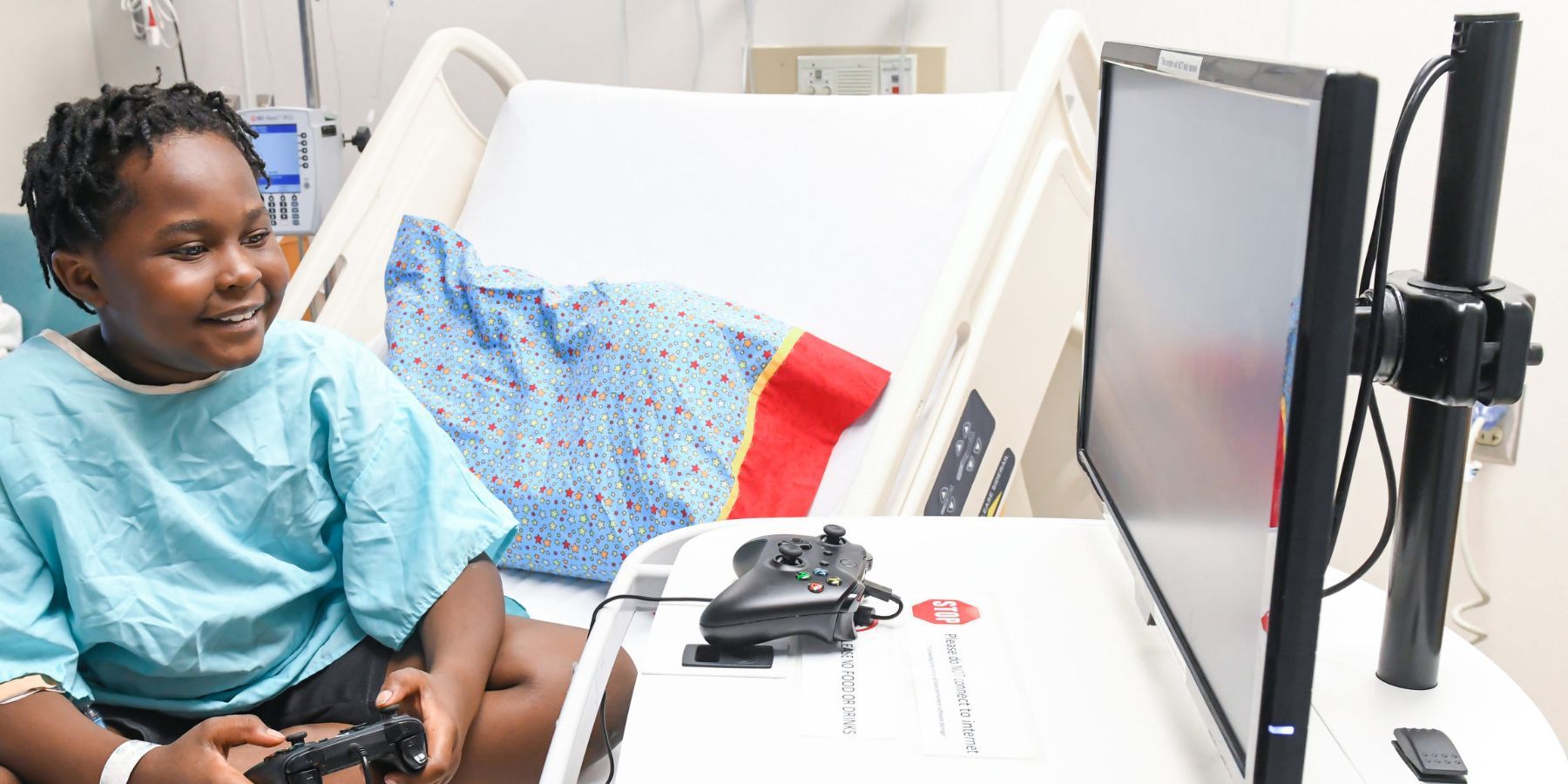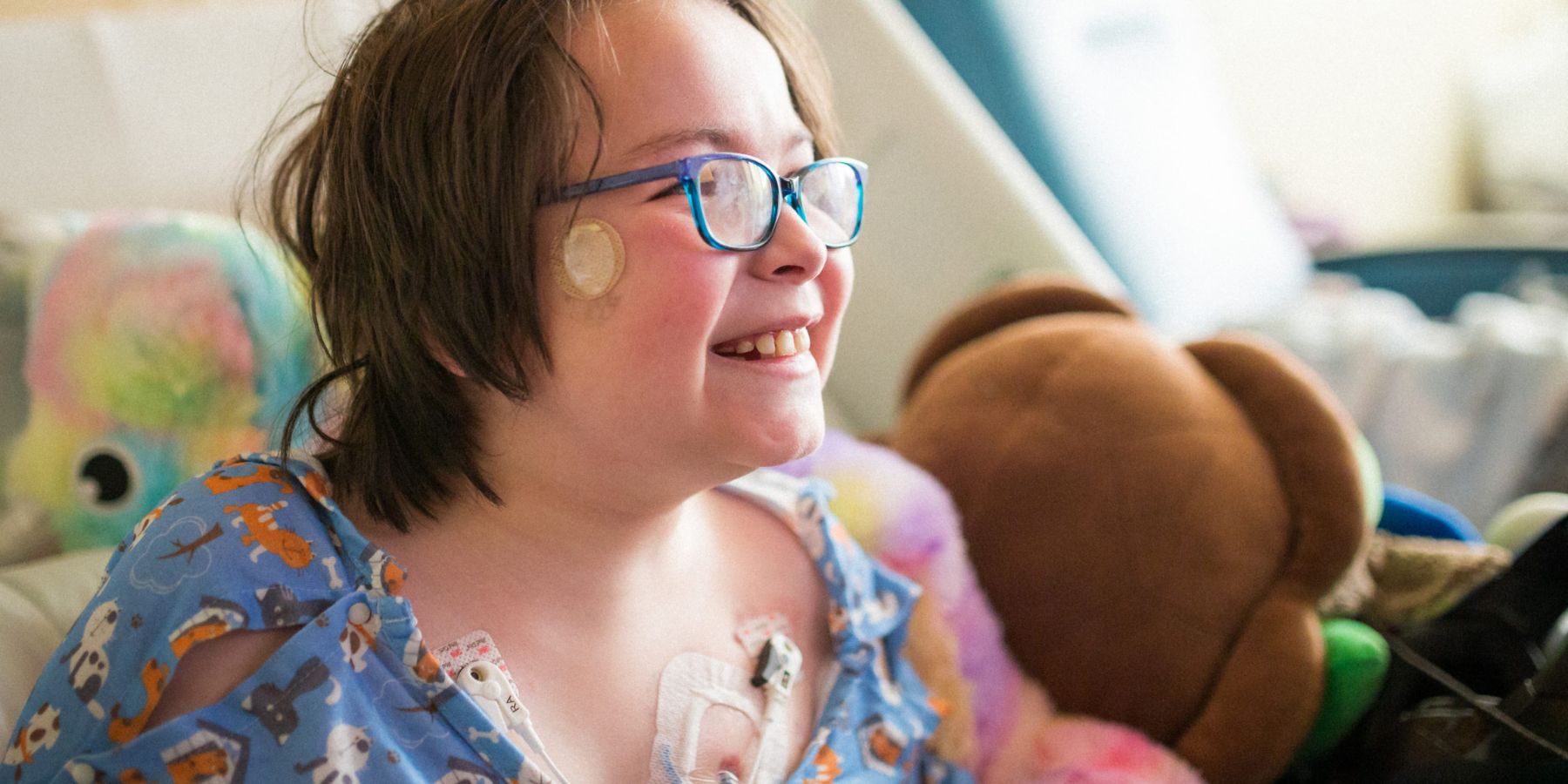Video games are increasingly recognized for their power to help others and their use for charitable events, live streams, and fundraising. One area where video games haven't perhaps always received enough attention is their role in supporting healthcare strategies, such as in hospitals. Many people may look to video games to support mental health and well-being, and may even look for video games to help with anxiety or help sleep management in an often fast-paced modern world.
Gamers Outreach is a non-profit charity with four main programs to make gaming more accessible in hospitals, including their portable video game kiosks called Go-Karts for children to use while undergoing surgery or receiving long-term treatment in the hospital. In the past, Gamers Outreach has previously joined forces with Microsoft and big celebrity names like Gal Gadot and Dwayne Johnson to donate Xbox consoles to children's hospitals. Game Rant recently spoke with Zach Wigal, founder of Gamers Outreach, about their core mission to bring video games to hospitals and how they help hospitals and their patients.
Gamers Outreach On How Video Games Help Patient Well-Being In Hospitals
One of the ways hospitals can benefit from video game access is improved patient well-being and even recovery. When speaking about the power of gaming to support well-being, Wigal described gaming as "a tremendous force supporting a person's well-being." Wigal supports this claim with numerous case studies about young patients who had benefited from using Gamers Outreach's portable GO-Kart entertainment systems while receiving treatment in the hospital. Wigal described one story about how playing video games motivated a child and made a positive impact on their recovery progress. Wigal explained,
"We supported a child who was going through physical therapy and was trying to regain the ability to stand and move around on their own. The child had to complete a series of standing exercises each day, where they would get out of bed and stand for a period of time. The health worker told us when the child was able to play video games alongside exercise, they were able to stand for three times as long as they had previously without games."
As well as increasing motivation, Wigal explained how video games are often a positive distraction and an activity that can help reduce patient anxiety, which can have multiple benefits for those receiving treatment and equally and for the hospital when managing resources. Wigal outlined a second story involving a child who was very anxious while receiving care for severe burns and the positive impact video games had on the patient and hospital staff resources. According to Wigal,
"We were involved with another instance where – and I tell this story fairly regularly - a child had severe burns on the side of his arm, and every few days, healthcare workers were coming in to change bandages. This child was getting so anxious over the procedure that 6 different health workers had to hold him down to change the bandages. But someone found out he liked playing Lego Batman, and they wheeled in one of our gaming Karts a few hours before the procedure was about to happen. It lowered the child’s anxiety, and by the time the health workers came to change his bandages, his only concern was whether he could keep playing Lego Batman."
Additionally, when considering how isolating hospital experiences can be, Wigal added video games are often an important way of remaining connected to friends and "are the only conduit kids have to the outside world while they're in the hospital". Wigal gave another example of a child who had a lengthy 9-month stay in the hospital while waiting for a heart transplant, and whose mother had praised his access to Minecraft during his hospital stay. As Wigal put it,
...his mum said if it hadn’t been for Minecraft, my son would have gone insane, because at least he had this digital playground to go and interact with his friends. He looked forward to that each day while he was in the hospital and it was a way for them to stay in touch while he was going through this process.
Although Wigal acknowledged that video games are sometimes used as escapism, this kind of story aligns with Wigal's strong belief that "games bring people together." Connecting through gaming can be another means of supporting well-being as demonstrated in the Covid-19 pandemic which saw many people connecting through online video games for life skills and experiences like increasing social interaction. Wigal additionally explained how "the value of connection became more apparent during the pandemic and as it related to Gamer’s Outreach programs, we saw an increase in activity and an increase in requests from hospitals who wanted to provide kids with something to do during lockdowns."
Gamers Outreach on How Video Games Improve Hospital Efficiency, Time-Management, And Support Sustainability
Wigal also added how hospitals benefit from access to video games for improving time management when it comes to giving them tools for managing activities. Wigal said, "The Go Kart is a method to allow healthcare staff to provide games to kids without having to spend too much time on that project." Wigal explained that time management is often a top priority for hospitals and technology can sometimes be time-consuming to set up, particularly for those staff who might not be familiar with modern console systems, so the GO-Kart helps solve this problem. Referencing the proceeding story about the child receiving burn treatment, Wigal added in addition to his benefit,
The healthcare workers are having an easier time doing their job. It's not their intent to cause more discomfort, they’re just trying to help somebody heal. But there's also a third argument to be made which is for the hospital's efficiency. There's an economic argument to be made for the hospital because those 4 other health workers could go support other patients. And that's a big deal because a lot of hospitals think about their resources from a perspective of time management.
In addition to helping hospitals manage video games through tools like their GO-Kart program, Gamers Outreach is also helping contribute to sustainability efforts and the environmental impact of video game consoles through its donation processes and the long-term design of the GO-Karts themselves that prevent the need for a cycle of multiple handheld devices. Wigal explained how the charity also accepts used video game donations from both companies and donors as another way people can support the work they do. Wigal said, "If hardware companies or video game companies have inventory that's going out of date or they are like recycling products, we can offload that gear and actually provide it to people who are going to put it to use, as opposed to it being destroyed or whatever else. So we can prevent things from going to waste."
Overall, there is a strong case that hospitals can benefit from having video game access in multiple ways. As well as helping hospitals manage their entertainment resources, it's clear Gamers Outreach's mission to bring video games into hospitals can have multiple benefits for patients, their families, and the hospitals where their products and services are deployed through efficient, time-saving, and waste-reducing means. As Wigal summarized,
Our big focus is trying to create a world where one day we all look back and ask, 'remember when hospitals didn’t have video games?' We want video games to be fully integrated with healthcare facilities because as I mentioned earlier, we really believe games are a tool that enable activities. And we have our 4 programs, those being our approach to trying to build that world and provide hospitals with the various ways to make games accessible.
The next Gamers for Giving fundraising event run by Gamers Outreach is taking place March 20 – 26, with the online streamathon running March 20 – 26 and the LAN Party taking place March 25 -26.



